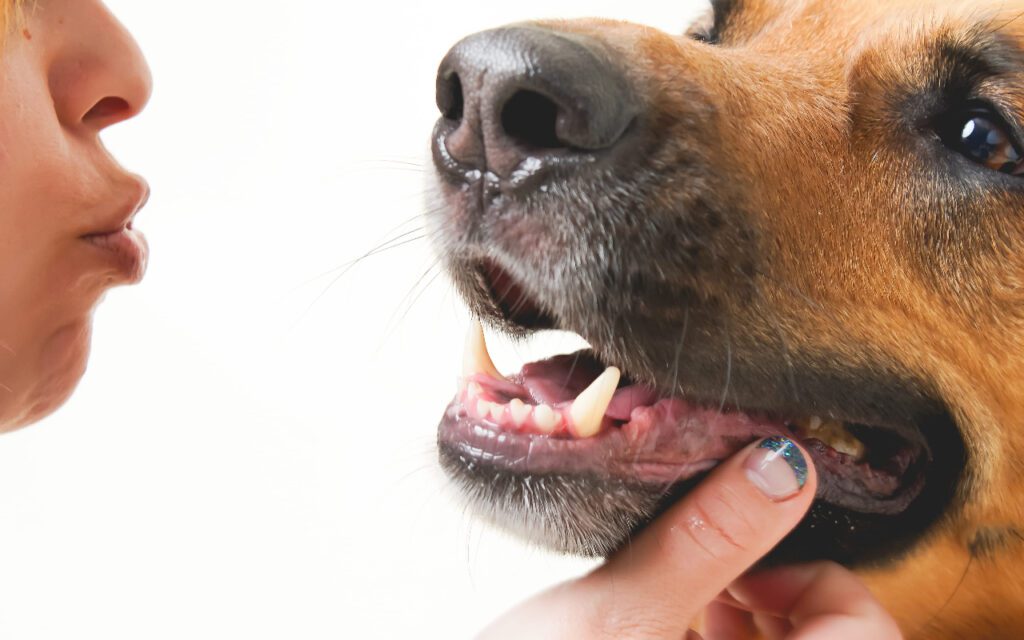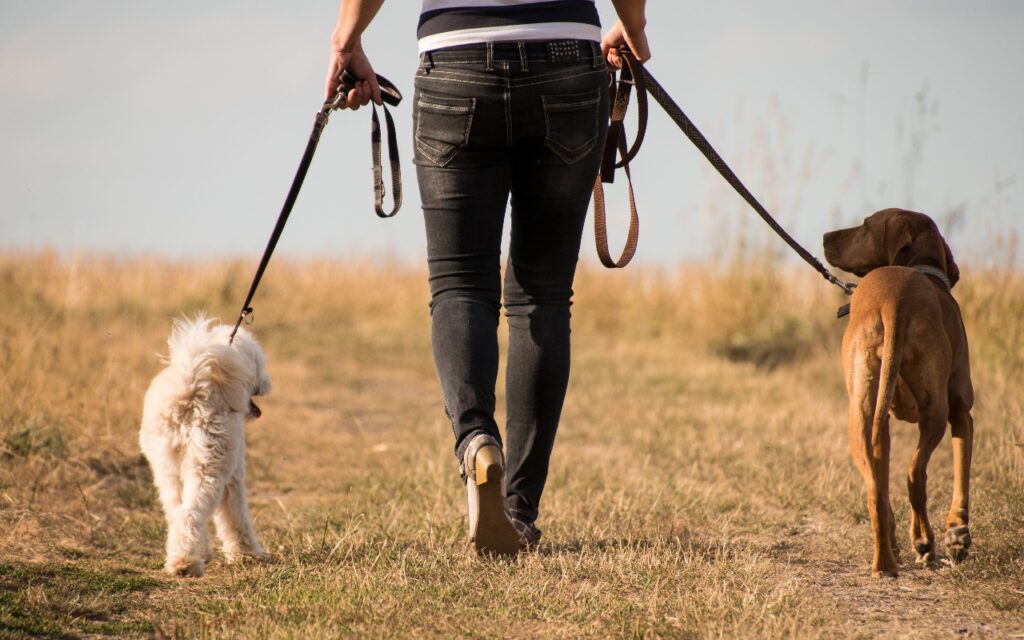Dogs, often referred to as man’s best friend, have a unique bond with humans that has been forged over thousands of years.
They are known for their loyalty, companionship, and their uncanny ability to tune into human emotions.
This emotional intelligence, combined with their keen senses, often leads to the question of whether dogs can sense anxiety in their human companions.
Key Takeaway
| Section | Key Takeaways |
|---|---|
| Introduction | Dogs can sense anxiety in humans due to their keen senses and empathetic nature. |
| Dogs and Human Emotions | Dogs have evolved alongside humans, enabling them to read human emotions effectively. |
| The Science Behind It | Dogs can detect changes in human body chemistry, such as the release of adrenaline during anxiety, through their acute sense of smell. |
| Dogs and Anxiety | Dogs mirror their owners’ anxiety, often showing signs of stress when their owners are anxious. |
| Dogs as Emotional Barometers | Dogs can act as emotional barometers, alerting their owners to their own heightened state of stress or anxiety. |
| The Role of Service Dogs | Service dogs are trained to recognize and respond to anxiety, providing support and comfort to their handlers. |
| Dogs and Anxiety Disorders | Dogs can provide significant emotional support for individuals with anxiety disorders, helping to alleviate acute anxiety symptoms and improve overall mental well-being. |
| The Impact of Owner’s Anxiety on Dogs | Constant exposure to an anxious owner can cause stress in dogs, leading to behavioral and physical symptoms. |
| Managing Anxiety for You and Your Dog | It’s important for owners to manage their own anxiety to ensure the well-being of their dogs. This can involve seeking professional help and employing at-home strategies to create a calmer environment. |
| Conclusion | Dogs’ ability to sense anxiety can provide comfort and support for those with anxiety, but it’s important for owners to manage their own anxiety to ensure the well-being of their dogs. |
Can Dogs Sense Anxiety?

Yes, dogs can sense anxiety in humans. They are highly perceptive animals and can pick up on subtle cues such as body language, tone of voice, and changes in behavior that may indicate anxiety.
Dogs may respond to an anxious person by becoming more attentive, affectionate, or protective.
However, it’s important to remember that while dogs can provide emotional support and companionship, they cannot replace professional help for individuals experiencing anxiety disorders.
Dogs and Human Emotions

Dogs have been evolving alongside humans for over 30,000 years. This long shared history has allowed dogs to become incredibly adept at reading human emotions.
They can pick up on subtle changes in body language, tone of voice, and even scent, which can indicate a person’s emotional state.
Dogs are known to respond to their owners’ happiness with joyous barks and wagging tails, and to their sadness with comforting nuzzles.
But their emotional intelligence doesn’t stop at reading visible cues. Dogs can also sense more complex emotions like anxiety, often before the person themselves is fully aware of their emotional state.
This ability to sense anxiety is believed to be a result of a combination of factors, including their acute sense of smell, their ability to read human body language, and their innate empathy.
The Science Behind It
The science behind dogs’ ability to sense anxiety lies in their powerful sense of smell. Humans, when experiencing different emotions, release different chemicals.
For instance, when we are anxious or stressed, our bodies release adrenaline. Dogs, with their incredible olfactory abilities, can detect these subtle changes in our body chemistry.
A study conducted by the University of Naples found that dogs could distinguish between different human emotions by smelling sweat samples.
The dogs in the study were able to differentiate between sweat samples from people who were happy, anxious, or neutral.
This suggests that dogs can indeed smell the change in their owner’s perspiration when they are anxious or stressed.
Dogs and Anxiety
When a dog senses anxiety in its owner, it often exhibits signs of stress itself. This is because dogs are empathetic creatures that can mirror their owners’ emotions.
They may become more alert, start to whimper, or show signs of nervousness. Some dogs may even act out, displaying behaviors like excessive barking, chewing, or pacing.
This mirroring of anxiety is not just a testament to the deep bond between dogs and humans, but it also serves a practical purpose.
By reflecting on their owners’ anxiety, dogs can alert their owners to their heightened state of stress, potentially prompting them to take steps to alleviate their anxiety.
Dogs as Emotional Barometers
Dogs’ ability to sense and reflect anxiety can make them excellent emotional barometers.
They can provide a valuable signal to their owners that they may be experiencing stress or anxiety, even if the person isn’t consciously aware of these feelings.
This can be particularly beneficial for individuals who struggle with recognizing or acknowledging their own emotional states.
By responding to their owners’ anxiety, dogs can provide a tangible indicator of emotional distress, potentially prompting the individual to seek help or employ coping strategies.
This ability to act as emotional barometers is one of the many reasons why dogs are often used as emotional support animals.
The Role of Service Dogs
Service dogs, particularly psychiatric service dogs, are trained to recognize and respond to anxiety in their handlers.
These dogs undergo rigorous training to learn specific tasks that can help alleviate anxiety. For instance, they can be trained to provide physical comfort, perform deep pressure therapy, or even fetch medication.
Some service dogs are trained to recognize the signs of a panic attack before it fully manifests, allowing them to provide support and comfort to their handler before the situation escalates.
The role of service dogs in managing anxiety is a testament to the incredible bond between dogs and humans. The profound impact this bond can have on mental health.
Dogs and Anxiety Disorders
For individuals with anxiety disorders, dogs can provide significant emotional support.
Their ability to sense anxiety can be particularly beneficial for those who experience panic attacks or other acute manifestations of anxiety.
During a panic attack, a person’s heart rate can skyrocket, and they may start to sweat profusely. Dogs, with their keen sense of smell and intuitive nature, can pick up on these changes and provide comfort.
They can nuzzle their owner, lay on their chest, or engage in other behaviors that can help ground the person and alleviate their anxiety.
Beyond these acute episodes, the mere presence of a dog can also have a calming effect, helping to reduce everyday anxiety and improve overall mental well-being.
The Impact of Owner’s Anxiety on Dogs
While dogs’ ability to sense anxiety can be beneficial, it’s also important to note that a constantly anxious owner can cause stress for their pet.
Dogs are empathetic creatures, and they can absorb the emotions of their owners. If they are constantly exposed to high levels of stress or anxiety, they may start to exhibit signs of stress themselves.
This can manifest as behavioral changes, such as increased aggression or destructiveness, or physical symptoms, such as loss of appetite or excessive grooming.
It’s important for owners to manage their own anxiety to ensure the well-being of their canine companions.
Managing Anxiety for You and Your Dog
If you find that your anxiety is affecting your dog, it’s important to seek help.
This could involve speaking to a mental health professional about your anxiety and possibly seeking the assistance of a dog trainer or animal behaviorist for your dog.
There are also various strategies that you can employ at home to help manage your anxiety and create a calmer environment for your dog.
This can include regular exercise, mindfulness practices, and ensuring that your dog has a safe space where they can retreat when they are feeling stressed.
Conclusion
In conclusion, dogs are incredibly attuned to their owners’ emotions and can indeed sense anxiety.
This ability can be a double-edged sword, providing comfort and support for those with anxiety. But also potentially causing stress for the dog.
It’s important for owners to manage their own anxiety to ensure the well-being of their canine companions.
Ultimately, the bond between dogs and humans is a powerful one. With understanding and care, it can be a source of mutual comfort and support.




Leave a Reply